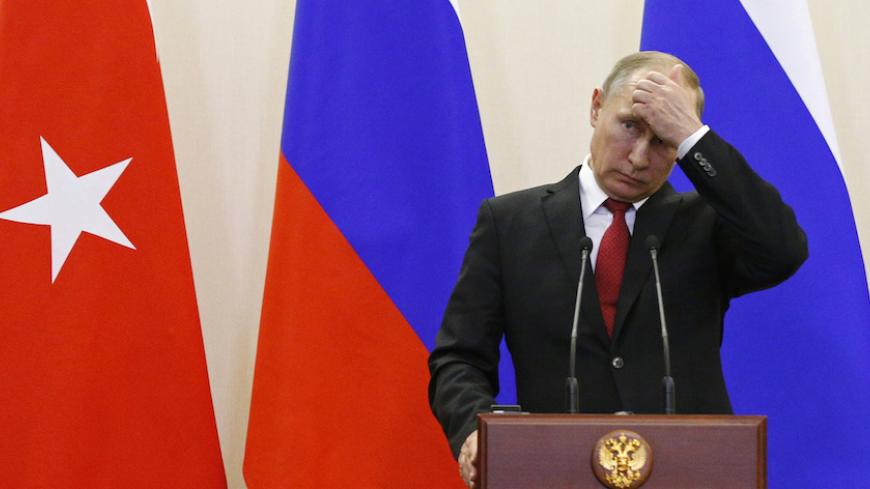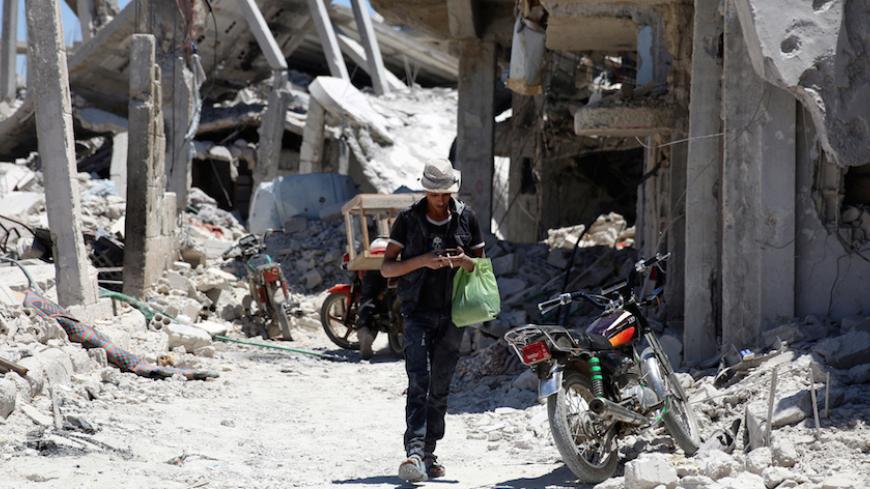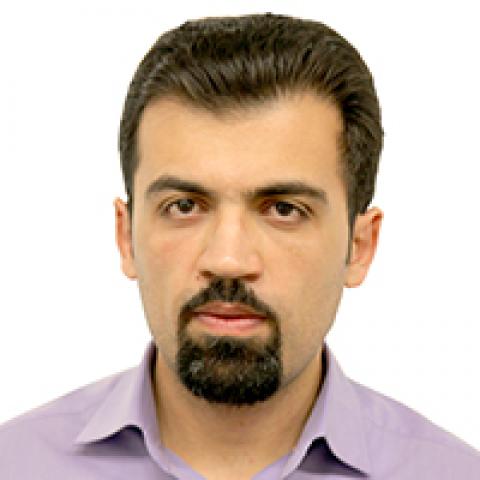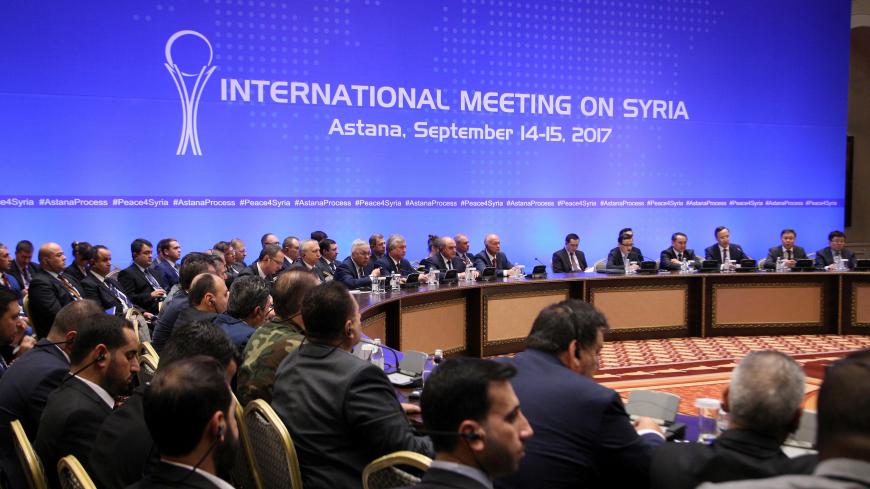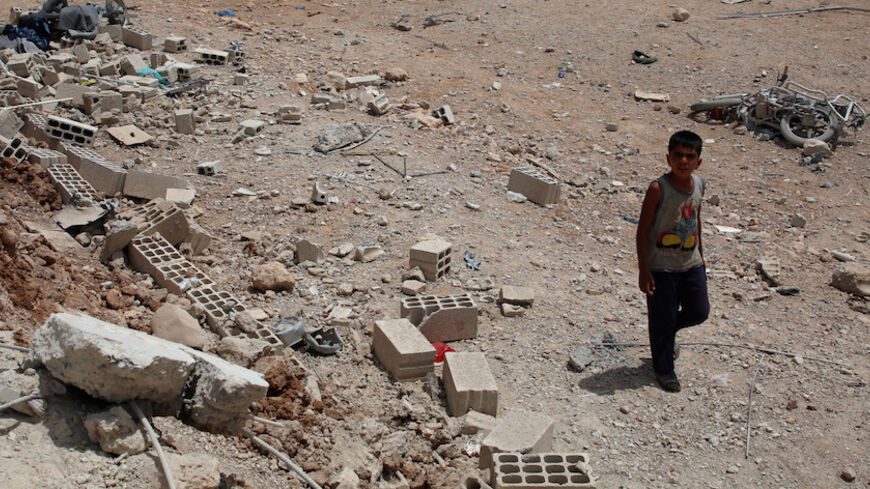![AFP_O387T CORRECTION - Russian mediator Alexander Lavrentiev, Iranian deputy foreign minister Hossein Jaberi Ansari, Kazakh Foreign Minister Kairat Abdrakhmanov and UN Special Envoy for Syria Staffan de Mistura attend the signing of a memorandum on creating safe zones in Syria during the fourth round of Syria peace talks in Astana on May 4, 2017. / AFP PHOTO / Stanislav FILIPPOV / The erroneous mention[s] appearing in the metadata of this photo by Stanislav FILIPPOV has been modified in AFP systems in the following m](/sites/default/files/styles/article_hero_medium/public/almpics/2017/05/GettyImages-678442688.jpg/GettyImages-678442688.jpg?h=f7822858&itok=-UstI4qb)
Why Iran wants 'de-escalation' zones in Syria
Subscribe for less than $9/month to access this story and all Al-Monitor reporting.
OR
Create an account for a 7-day trial to access this article and all of AL-Monitor.
By entering your email, you agree to receive ALM's daily newsletter and occasional marketing messages.










